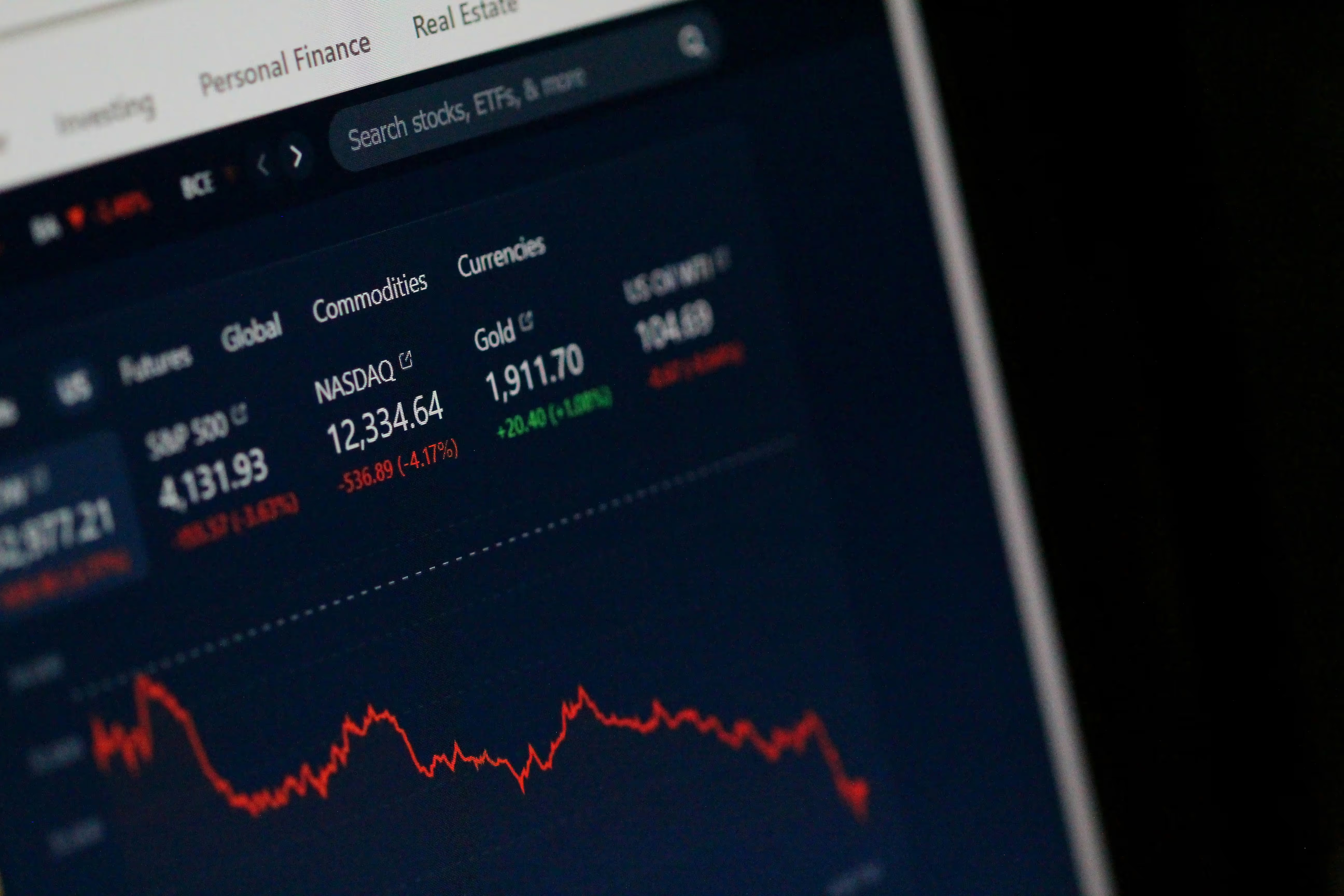
Kudos has partnered with CardRatings and Red Ventures for our coverage of credit card products. Kudos, CardRatings, and Red Ventures may receive a commission from card issuers. Kudos may receive commission from card issuers. Some of the card offers that appear on Kudos are from advertisers and may impact how and where card products appear on the site. Kudos tries to include as many card companies and offers as we are aware of, including offers from issuers that don't pay us, but we may not cover all card companies or all available card offers. You don't have to use our links, but we're grateful when you do!
Does Investing Affect Your Credit Score?
July 1, 2025


Quick Answers
Standard investment activities, such as purchasing stocks, bonds, or mutual funds with your own cash, are not reported to credit bureaus and therefore do not directly influence your credit score.
Using borrowed funds to invest, such as taking out a personal loan or trading on margin, increases your debt obligations and can negatively impact your credit score by raising your credit utilization ratio.
Profitable investing can improve your overall financial health, making it easier to manage debts and pay bills on time, which indirectly supports a strong credit history.
What Is an Investment?
Investing is the act of allocating money to an asset or item with the expectation of generating a future return. The primary goal is to grow your initial capital over a period, allowing your money to work for you. Common investment vehicles include stocks, bonds, mutual funds, and real estate, each with varying levels of risk and potential reward.
While investing activities do not directly influence your credit score, the financial discipline required to invest often correlates with a healthy credit profile. Consistently saving and managing your budget to free up investment capital typically involves responsible habits like timely bill payments and low credit utilization. Furthermore, certain investment strategies, such as financing a real estate purchase, will directly impact your credit through the creation of new debt and subsequent payment history.
How Investing May Impact Your Credit Score
Contrary to what you might think, your investment portfolio has no direct bearing on your credit score. However, the way you fund your investments can indirectly create a significant impact.
Borrowing to Invest: The process begins when an investor decides to use borrowed funds, such as a personal loan or a margin loan from a brokerage, to purchase assets instead of using cash.
The Hard Inquiry: Applying for that loan triggers a hard inquiry on your credit report. Lenders check your creditworthiness before approving new debt, and this inquiry can cause a small, temporary dip in your score.
Increased Debt Load: Once the loan is approved, it appears on your credit report as new debt. This increases your total debt balance and can affect your debt-to-income ratio, a metric lenders watch closely.
Repayment Behavior: Your subsequent handling of the loan is critical. Consistent, on-time payments can help build a positive credit history. Conversely, if the investment performs poorly and you miss payments, your score will suffer significantly.
How Much Will Investing Affect Your Credit Score?
While investing itself doesn't directly influence your credit score, certain related financial activities can have an impact. Here are a few key considerations to keep in mind when managing your investments and your credit.
- Brokerage Accounts. Opening a standard investment account typically does not require a hard credit inquiry. Therefore, this action alone will not affect your credit score like applying for a new loan or credit card would.
- Investment Loans. If you take out a personal loan to fund investments, the lender will perform a hard inquiry. This new debt can also increase your credit utilization ratio, potentially lowering your score in the short term.
How You Can Avoid Investing Affecting Your Credit Score
Use Cash Instead of Credit
The most straightforward method is to fund your investment accounts using cash from a checking or savings account. By using electronic funds transfers (EFT) or debit cards, you ensure the transactions are not credit-based and therefore won't be reported to the major credit bureaus.
Understand Investment-Backed Loans
Be cautious with products like margin loans or securities-backed lines of credit. While they may not require a hard credit inquiry to open, defaulting on these loans can lead to collection actions that will ultimately harm your credit score, separate from the initial investment activity.
Choose the Right Card to Investing
Your credit score isn't set in stone; it's a dynamic number that can always be improved with consistent, positive financial habits. In fact, most people can see meaningful changes within just a few months of taking the right steps.
- Monitor your credit reports. Regularly check your reports from all three major bureaus—Experian, TransUnion, and Equifax—to identify and dispute any inaccuracies.
- Set up automatic payments. Your payment history is the most significant factor in your score, so setting up automatic payments ensures you never miss a due date.
- Reduce your credit utilization. Aim to keep your credit utilization ratio below 30% by paying down balances or requesting a credit limit increase.
- Become an authorized user. Being added to an account with a long, positive payment history can help build your own credit profile.
- Limit hard inquiries. Avoid applying for too much new credit at once, as multiple hard inquiries can temporarily lower your score.
- Diversify your credit mix. Lenders like to see that you can responsibly manage different types of credit, such as credit cards and installment loans.
The Bottom Line
Investing itself doesn't directly impact your credit score. However, the methods used to fund your investments, such as taking out a loan, can have an indirect effect on your credit history.
Frequently Asked Questions
Does buying stocks affect my credit score?
No, purchasing stocks or other securities with your own funds is an investment activity, not a credit one, so it does not directly affect your credit score.
Can using a loan to invest impact my credit?
Yes, applying for a personal loan to invest triggers a hard inquiry, which can temporarily lower your score. Making timely payments can build credit over time.
Will investing through a robo-advisor affect my credit score?
Generally, no. Opening an account with a robo-advisor and funding it with your money does not involve credit checks or reporting to credit bureaus.

Supercharge Your Credit Cards
Experience smarter spending with Kudos and unlock more from your credit cards. Earn $20.00 when you sign up for Kudos with "GET20" and make an eligible Kudos Boost purchase.
Editorial Disclosure: Opinions expressed here are those of Kudos alone, not those of any bank, credit card issuer, hotel, airline, or other entity. This content has not been reviewed, approved or otherwise endorsed by any of the entities included within the post.




















.webp)
.webp)
.webp)
.webp)
















